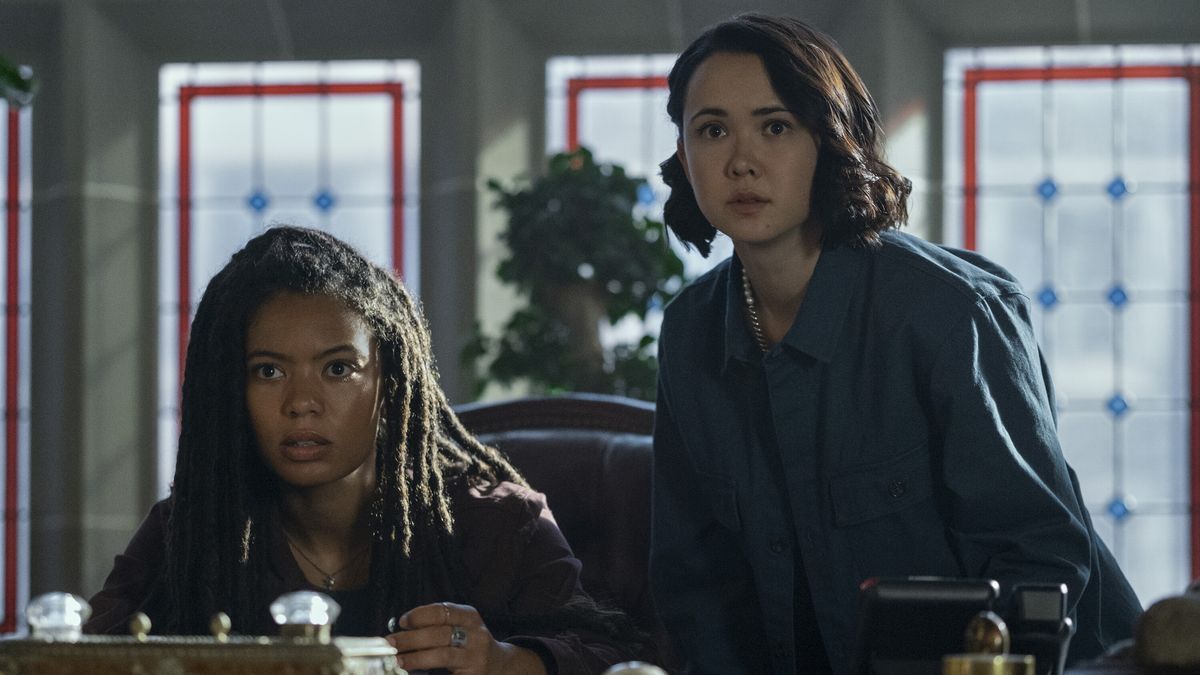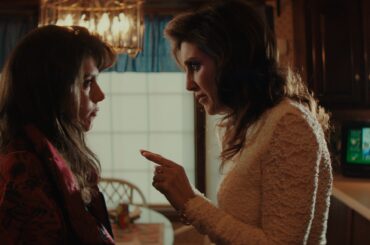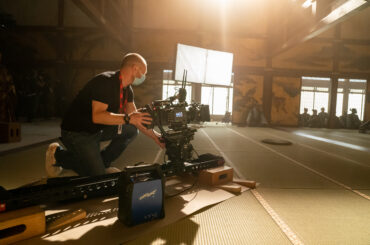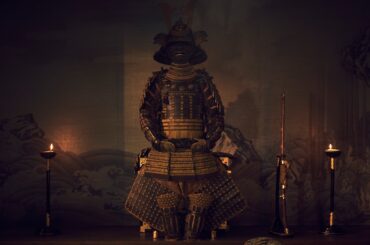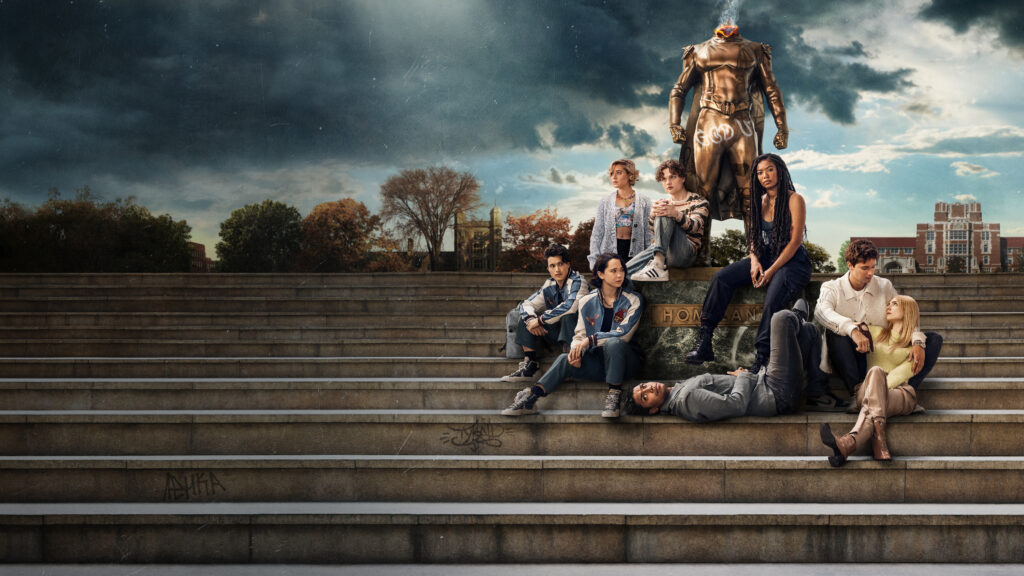
Gen V is like an R-rated John Hughes story. The laughs as well as the drama of turning toward adulthood are cranked up an 11, maybe even a 23 in The Boys spinoff. Sometimes the pain and satire hits even a little harder since it’s about young supes, a fresh-faced ensemble facing blood-soaked adversity.
At the same time, Gen V is hilarious.
It’s not always an easy tone to strike, but editor Maura Corey hit her target with ease. Tonal whiplash is dramatic, not disorienting. The laughs increase the pain. And the pain dramatizes the action. All of the tones come to a violent collision in the Gen V finale from director Sanaa Hamri.
Previously, Corey cut episodes of Kevin Can F**ck Himself, Key and Peele, and Woke. For Gen V, she handled episode four and the lean, mean, and dramatic finale. She recently discussed cutting both episodes with Immersive Media.
[Note: This interview has been edited for clarity and length]
The finale is under 40 minutes. With all the characters, moving pieces, and action, how was it balancing all those elements there?
Episode eight, we knew it ran shorter than maybe most finales would run. We didn’t want anything extraneous, so we weren’t really concerned with runtime. We wanted the energy and the chaos of that final school attack to be action-packed and maintain a high level.
In episode eight, Kate frees the supes and these supes come out to the glaring sun. We have this montage of Rihanna in the back with the song “Desperado.” Once that supe’s hand starts to melt the woman’s face, we knew right then and there that it was on. We had to keep that tension up. We did a lot of restructuring with the episode to make sure that once we got there that we could maintain that anxiety, fear, and action while still managing to get the drama.
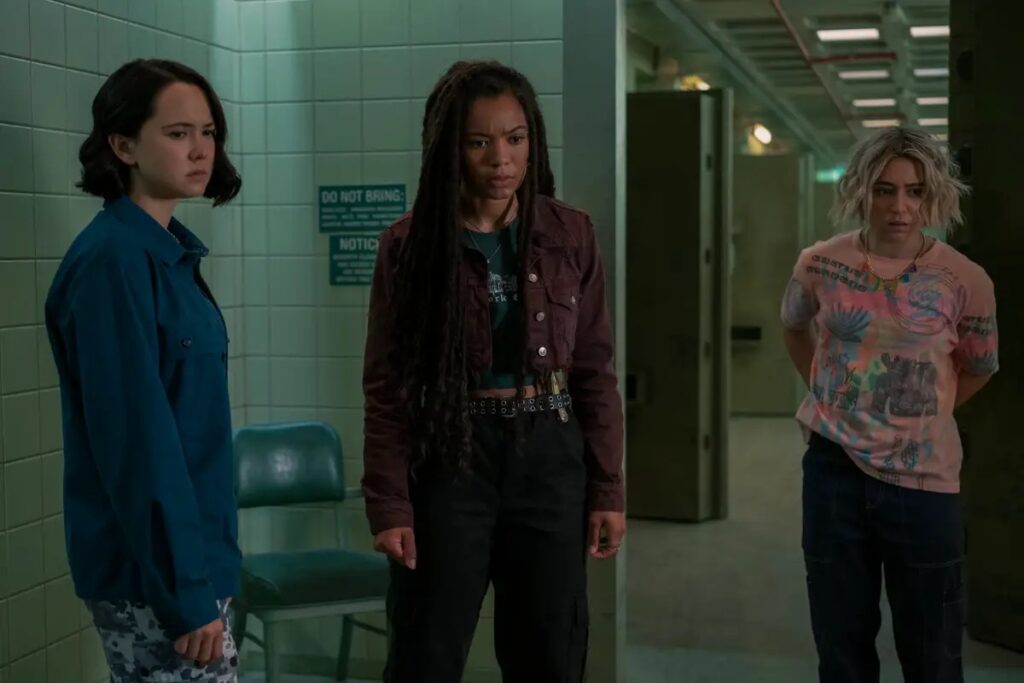
The face melting is horrifying, but if there’s one more shot, maybe a funny reaction reaction shot, it could have become a joke. How’s dealing with tone in moments that are shockingly violent?
I was a huge fan of The Boys walking in, so I was excited to participate in this tone. The violence is comic booky, but also, really violent and has to be earned. Especially in the face melting scene, make sure you’re not making it a joke and it feels really scary. Our VFX team killed the look, it was just so cool. We only did a few cutaways of people being shocked. And in real life, if you saw something like that, you would freeze or freak out or you’d run away. There’s very few people who would probably run in and help. We wanted to make sure we just had that solid moment of what is going on because we’re about to do this in other places on the campus. So this was our first, you got to almost weirdly settle into it and let it take in.
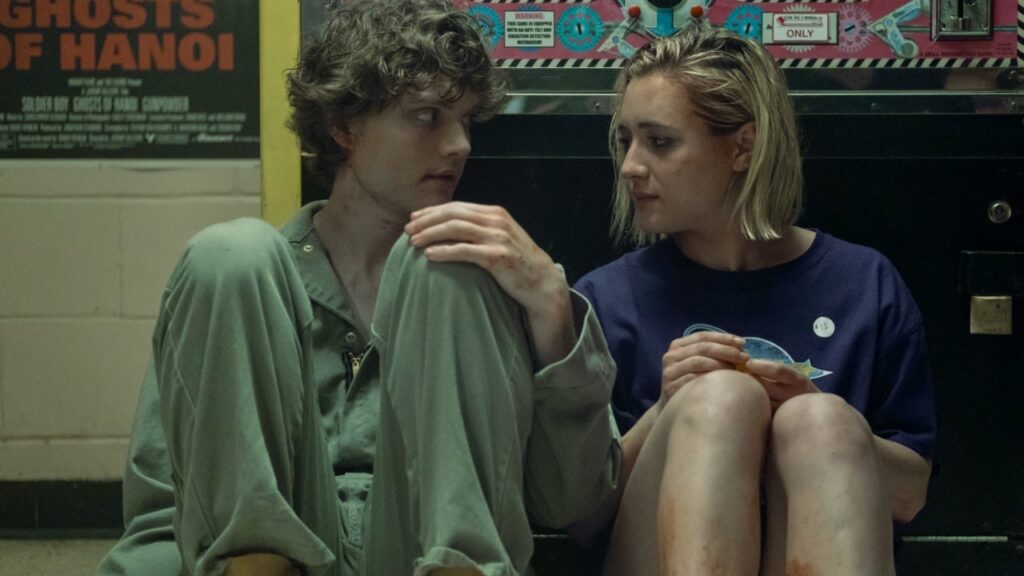
Is there a lot of experimenting with tone on Gen V?
Absolutely. The showrunners are cool with taking big swings at stuff. If it doesn’t work, we’ll try something else. But we played with the Rihanna song a bunch and tried different things under it and nothing worked as well. Music has a lot to do with it. Also, pushing it as far as you can without it being ridiculous. Well, maybe pushing it to be ridiculous, just depending on what the beat is, we want to make sure that it’s the most concentrated thing it can be.
In addition to a big ensemble and a tricky tone, you have VFX. Editing without finished effects for the finale, what questions did you have about timing for the VFX supervisor or editor?
This show really does dive into temp VFX more than any other show I’ve ever worked on. I was working hand in hand with my VFX editor when I was temping scenes out. For instance, in episode 104, when you see the end fight where they’re trying to contain Sam’s anger and temper tantrum, he is going to kill Dr. Cordosa, that’s where we really see Marie’s blood powers in action. She slits her hand and throws the blood whipped around Sam’s neck.
I get the footage, it’s just we see the actress throw her hand out. I’m like, okay, I guess that’s blood. I would send what I thought was the fight to my VFX editor, and he would temp all the blood work. When I got it back I could go, “Oh, this is too long. This is too short. We need a shorter reaction of him getting blood wrapped around his throat. I need a harder cut from here to here.” Temping in all that stuff was super helpful creating those high-octane action scenes.
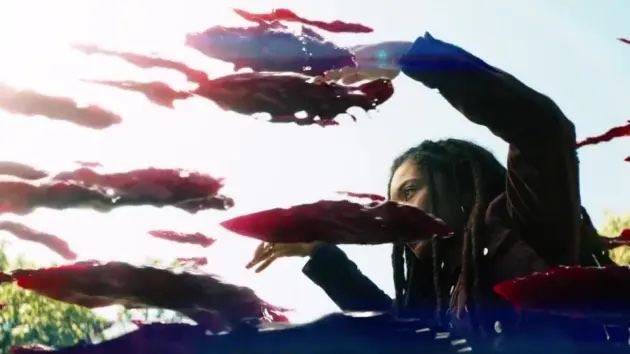
Actors sometimes will talk about the similarities between action and comedy in terms of timing. As someone who cut Key and Peele episodes, is that true for you as well?
Yeah, action is cut faster than comedy by a long shot, but comedy you do cut fast and quick. Key and Peele is a little different, though. They lent themselves a lot to genre. If they were doing a gangster sketch, it had to feel like a gangster movie. But if you do pure comedy, a lot of it’s very tight, and action is very tight.
For action, some of your cuts are as little as 10 frames. If you were doing that in a comedy dialogue scene, that would look like a mistake. To me, you want to be constantly moving so people don’t feel like they’re waylaid waiting for the punch or waiting for the punchline.
As a quick aside, you did some excellent early-2000s riffing with “Sexy Vampires.”
[Laughs] See, stuff like that, the comedy is in the editing, right? Just so silly and beautifully silly. Whenever I edit comedy, my first thought is always, is it making me laugh? If it’s making me laugh the 10th time down or the 12th time down, I’m like, don’t change it.
How do you balance objectivity and subjectivity in the editing room? Watching a scene over and over again, how do you try to track whether it works?
I take copious notes. If somebody’s got a dramatic scene where I’m like, oh, I got the feels on that, or there is a read that makes me laugh and like, oh, that’s hilarious, I’ll mark it as four stars. As I go through the takes and we get tons of notes, sometimes I go back and go, “Well, what was really the funniest thing I thought first?” And then I go, “Oh, I have this marked as the funny one.” Sometimes it’s like, “How did this get too overworked? Well, let me go back to what I thought in the beginning, because my initial reaction is where I start from.” It’s more about just taking notes, communicating with your producers, and trying to explain or sell the cut the way you feel it works best.
Do you have rules for yourself about when you’re cutting action?
Impacts are huge. Cuts to show impact are huge. I think you do that a lot, and it makes it more violent because your eye doesn’t realize it’s doing it. Do you know what I mean? If you hear a punch and a cut, it’s like you jerk back and have a visceral reaction to that.
You don’t do it on every punch, but you do do it as much as you can to create a feel. I mean, there are rules to it, but it’s more of a feel when it’s working. There are issues, too, where you want to see the action twice from two different angles. That also makes it feel visceral.
[Note: A discussion about a scene involving sexual violence in Gen V is ahead.]
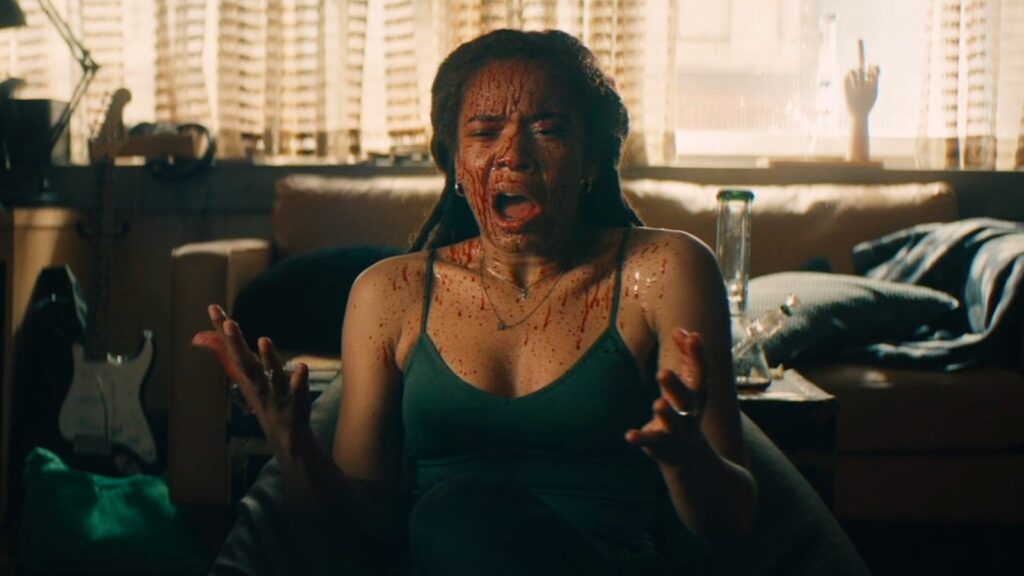
So, I have a VFX and tone question about an important scene in episode 4. It’s also a sensitive scene, and it involves a male organ exploding.
Is salty language okay here?
Yes. The scene is horrifying. One, how’d you want to delicately or not delicately cut that scene? Again, it’s awful, but you also get a laugh at comeuppance at the end, too. How did you do that?
Oh, I agree. We called it the Cocksplosion, by the way. You can edit that out if you want.
I won’t.
I think that part of what is brilliant in The Boys universe is they’re not afraid to go there. Rufus is about to rape this woman. He has roofied her, she’s on the floor, she wakes up. To me, it’s such an earned violence from her. It’s such an earned thing to happen to him because he’s about to violently rape her. During it, the actor who played Rufus, he had on a prosthetic, and this was just bizarre… It had a bladder in it so it would expand. So, he would know how to react to what was supposed to be happening to him.
And then again, it was just cutting together pretty fast, making sure that it felt like Marie had no control over her power, that this was an instinctual thing she was doing to protect herself and him being so surprised at what was happening. So, we made sure it was pretty quick.
My initial cut was really long and was really uncomfortable. When we started working with it, the discussion came to, “No, no, no, it has to be almost immediate that she doesn’t know what’s happening. It’s going to make the explosion feel a lot more shocking.” There was always a fine-line between horrible and funny. I didn’t actually get to see the final VFX until it aired because after I locked everything. They had a lot of VFX to do. I was really happy with how it came out.
Thank you for answering that question. It’s just, that’s probably one of the most critical scenes, as a storyteller, I imagine.
I agree. I thought it was incredible and I thought it was really great to have this female character be able to defend herself against something like that. And then at the end, Jordan breaks down the door and when they’re walking out, I can’t remember, but there’s a funny punchline there, too.
My last question for you, we probably covered this quite a bit, but what did you find most rewarding as an editor and as an artist with Gen V?
Working on a show like Gen V, the coolest thing for me is the fine line to find the satire. I get to work on scenes that are legitimately dramatic, legitimately comedy and legitimately action all in one episode. You have to really thread that needle to make it all work, so you don’t get emotional whiplash, and you can maintain the audience’s enthusiasm for these characters.
The stories we tell may seem fantastical, but really, they’re about college students going through a rough time in their life. It approaches big subjects like rape on college campus or gun violence, anything, and makes it approachable, I think, to kind of suss out the real world. I hope people watch this and not only want to rewind it much again, because it was fun, but also that they have a story that maybe they connect with on a personal level.
Gen V is now available to stream on Prime.


